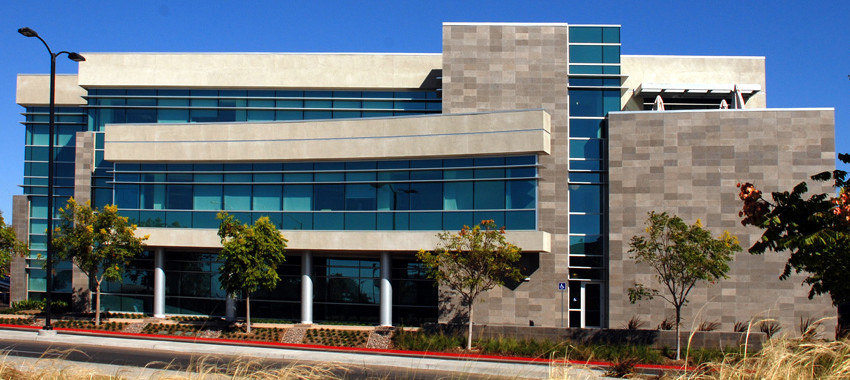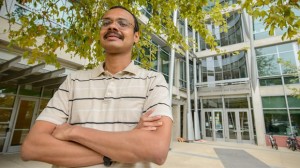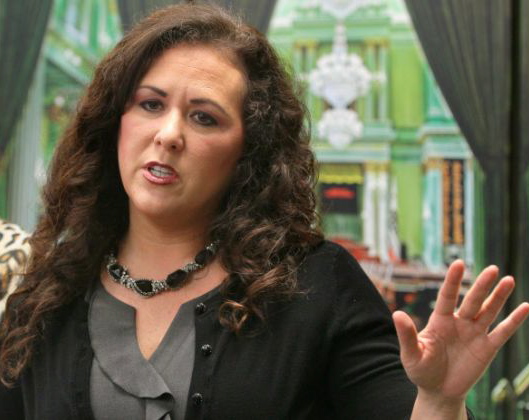Daily Business Report-March 17, 2015
Assemblywoman Lorena Gonzalez is taking on Civic San Diego, Mayor Kevin Faulconer and other Downtowners with her Assembly Bill 504.
Gonzalez Sets Sights on Civic San Diego
By Andrew Keats and Sara Libby| Voice of San Diego
San Diego’s most attention-getting lawmaker is turning her attention to Civic San Diego. Assemblywoman Lorena Gonzalez announced a bill March 6 that would give the City Council final say on decisions by Civic San Diego, a city-owned nonprofit that handles planning and permitting downtown.
AB 504 would limit the organization’s attempts to expand into neighborhoods like Encanto and City Heights — a priority of Mayor Kevin Faulconer’s — and weaken its role Downtown.
The city lets Civic San Diego handle Downtown land-use decisions. Civic San Diego also now competes for federal tax credits to fund projects in low-income areas.
Gonzalez’s office says the organization’s “potential authority to dramatically engineer the future of neighborhoods with little supervision or accountability presents a serious conflict of interest.”
She said Civic San Diego is currently operating in a legal gray area anyway.
“I think we’re protecting the city from itself,” she said. “The city won’t be happy, but we’re putting in place a way for Civic San Diego to continue to operate in a legal fashion.”
She’s right that the city isn’t happy.
Faulconer spokesman Charles Chamberlayne said the bill would undermine the city’s attempts to use Civic San Diego for economic development. “This legislation is another example of state interference in local control and will cripple Civic San Diego in its work to invest in neighborhoods like Encanto and City Heights,” he said in a statement.
There’s already some discrepancy over how the bill would affect Downtown development.
Chamberlayne said making the city sign off on all Civic San Diego decisions would mean development would take longer.
That might be the case if low-level approvals currently made by Civic San Diego could be appealed to the Council. Now, Civic San Diego can approve those projects as long as they’re consistent with the Downtown community plan.
But Gonzalez said any project that conforms to a Downtown-wide environmental review previously approved by the Council could still be approved by Civic San Diego.
Additional approval would only be required of projects that deviate from existing plans.
Regardless, Gonzalez shouldn’t have much problem getting the bill through the Committee on Local Government, where she’s vice chair and ranking Democrat on a majority-Dem committee.
This really is a San Diego-specific bill. There don’t appear to be any other former redevelopment agencies handling permitting decisions for their cities.
Assembly Speaker Toni Atkins will have an interesting decision, then, once the bill emerges from committee, given expected opposition from Faulconer and anyone else looking to maintain Civic San Diego’s role Downtown.
Click here to read a commentary against the proposed bill.

Military Partners With Nonprofit Group
on Campus for Developmentally Disabled
The nonprofit TERI Campus of Life organization reports that the first set of troops have arrived to begin construction of a 20-acre campus in San Marcos that will provide education and empowerment for individuals with developmental disabilities.
The organization is partnering with the Department of Defense’s Innovative Readiness Training Program (IRT) to construct the Campus of Life, which is expected to be completed and open in 2017.
Construction costs are estimated at more than $20 million, but the military labor and equipment that will be provided is expected to save $3.4 million a year for the organization.
“We are overwhelmed with the support of the community who helped us spread the word and raise the funds to continue this collaboration. I am just speechless,” said Cheryl Kilmer, TERI Campus of Life CEO and founder.
When the campus is complete, the site will consist of 10 buildings and over 100,000 square feet of education space. All 20 acres will be developed on the property in San Marcos that currently houses the organization’s therapeutic equestrian center at 555 Deer Springs Road. Among the new buildings there will be an aquatic and fitness center, a music and performing arts center and an organic farm.
“The first facility of its kind, the Campus of Life will be a true center of excellence in the education and empowerment of individuals with developmental disabilities,” the organization said in a report on the project. “The knowledge and innovative approaches generated on campus will be shared with our outside partners to improve the lives of individuals with developmental disabilities the world over. The campus will provide an inspired and therapeutic environment for individuals with autism and other developmental disabilities.”
The Department of Defense’s IRT program is a military volunteer training opportunity that provides training and readiness for military personnel while addressing the needs of underserved American communities. Through this program, military units refine their engineering, health care, diving, and transportation skills by performing services and developing projects for communities that otherwise would not have the resources to conduct them on their own.
The collaboration with the military will bring 400 service members through the campus. The first units were to arrive on Monday.
“Not only will this partnership help TERI and the San Diego community, this will be a unique opportunity for all branches of the military to work together on a single project,” said Kilmer. “The members will come from all over the U.S. and have the chance to learn about autism, special needs, and what programs are available to support these individuals.”

Mesa College Secures Final Approval to Offer
Bachelor’s Degree in Health Information Management
San Diego Mesa College has secured final approval from the California Community Colleges Board of Governors to offer a bachelor’s degree as early as this fall in the rapidly growing field of Health Information Management.
“This will be a high-quality program, with top-notch faculty and facilities, and with definite jobs waiting for students who complete their degree,” said Constance Carroll, chancellor of the San Diego Community College District.
The Mesa College program will be offered through the college’s School of Health Sciences and Public Service. Up to 32 students can enroll each year, and they will be required to complete 60 units of lower-division coursework at $46 per unit. Students enrolled in upper-division coursework will pay an additional $84 per unit, with the total cost of the four-year program — not including books and other expenses — amounting to about $10,500.
Mesa College will enroll its first freshman class of 32 students in fall 2015. Upper level coursework will be offered in fall 2016 to individuals who meet the criteria for enrollment.
The program will be headquartered in Mesa College’s state-of-the-art Allied Health and Training Facility, which opened in 2009. The $28.9-million, LEED gold certified building comprises 50,000 square feet for laboratories, classrooms, and offices. Mesa College also has secured adequate clinical placement sites to support all program requirements.
San Diego State University Near Bottom
Of NCAA Field in Academic Progress Rate

San Diego State shares the fifth lowest Academic Progress Rate among the 68 teams in the NCAA Division 1 men’s basketball tournament, despite a small improvement from last year, according to a study released Monday.
The Aztecs have a 939 Academic Progress Rate, as does SMU. The teams with lower rates are Coastal Carolina (910), Arkansas (937); and North Carolina and Robert Morris (938), according to “Keeping Score When It Counts: Graduation Rates and Academic Progress Rates for the 2014 NCAA Men’s Division I Basketball Tournament Teams,” a study conducted by the Institute for Diversity and Ethics in Sport at the University of Central Florida, based on figures reported by the NCAA.
San Diego State had a 935 Academic Progress Rate a year ago, tying for the 10th lowest.
There was no immediate response to a request for comment from San Diego State.
There were five teams with a perfect scores of 1,000 — Belmont, Indiana, Kansas, Louisville, and Texas. Kansas was the only team with a perfect score last year. Duke, Northern Iowa and Notre Dame all had rates of 995. The rest of the top 10 consisted of Lafayette (994) and Davidson (990).
Pre-tournament favorite Kentucky was 11th at 989.
The Academic Progress Rate was created by the NCAA in 2004 in an effort to more accurately measure student-athletes’ progress and improve graduation rates.
The rate is a four-year average of academic performance that rewards student-athletes for remaining eligible as well as continuing education at the same school. Every player receiving an athletic scholarship earns one retention point for staying in school and one eligibility point for being academically eligible. A team’s total points are divided by points possible and then multiplied by 1,000 to determine the Academic Progress Rate.
— City News Service
San Diego Ranked 4th in
Top 10 Biopharma Clusters
San Diego ranks 4th in the nation for biopharma clusters, following Boston, San Francisco, and New York/New Jersey, respectively, according to Genetic Engineering & Biotechnology News.
San Diego had its best score in venture capital funding (No. 3 overall) and also did well in patents compared to the three much larger regions. GEN ranks regions based on five criteria: NIH funding, venture capital funding, patents, lab space, and jobs.
Read the full list here.
BlueTech Incubator Proposed
As Part of Maritime Vision
County Supervisor Greg Cox today will call for the creation of a BlueTech incubator as part of a maritime vision for the region. The maritime vision is being initiated by the county, the city of San Diego and the Port of San Diego to “promote San Diego as a leading global maritime technology center,” according to a resolution being voted on by the Board of Supervisors. The City Council is expected to vote on the vision at its meeting today and a Port vote is expected in April.
As part of that vision, the three agencies will partner to create a BlueTech incubator to create more jobs and businesses in water technology, aquaculture, underwater robotics and other related industries.
“Our Blue Economy already includes 1,400 maritime-related companies with over 46,000 employees but we’re just scratching the surface of what we can do with it,” said Cox. “A regional vision and a BlueTech incubator will help us realize the full potential of our Blue Economy.”
Cox has championed the Blue Economy, with support from The Maritime Alliance. Last year, working with the Port, the supervisor pushed for the temporary opening of a fishermen’s market at Seaport Village. He is working with state legislators on a bill that would allow for permanent fishermen’s markets and would promote locally caught seafood.
The regional maritime vision includes work by the private sector and governments, including military research grants and innovations supported by world- class organizations like the Hubbs-Seaworld Research Institute and the Scripps Institution of Oceanography.

Money Flows to New UCSD Computer Center
Sony and a handful of other well-known media and tech companies have invested $350,000 in UC San Diego’s new Center for Visual Computing, which will study everything from virtual and augmented reality to object recognition. Led by Ravi Ramamoorthi, a nationally-known computer scientist who was recruited from UC Berkeley last year, the center’s aim is to make UC San Diego a power in the fast-growing field of computer graphics and vision.
Read the full story here.
Illumina Partners With Merck
Serono On Cancer Test Development
Illumina has signed up another big pharma — this time Merck Serono — to develop a universal, next-generation sequencing-based cancer test ultimately able to select the right personalized cancer drug for each patient.
In addition to separate collaborations with AstraZeneca, Janssen Biotech, and Sanofi, Illumina and Merck aim to create a universal test system for clinical trials of targeted cancer therapies, with the goal of a more comprehensive tool for precision medicine.
The companies plan to develop assays that detect and measure multiple variants simultaneously to support clinical studies.
Financial details of the collaboration were not revealed, but it was noted that the deal includes test development, worldwide regulatory approvals and global commercialisation.
— PharmaTimes
General Atomics Predator Drone
Reaches 1 Million Hours Milestone
General Atomics Aeronautical Systems announced Monday its Predator B/MQ-9 Reaper series of remotely piloted aircraft have reached the milestone of 1 million cumulative flight hours, with almost 90-percent of missions flown in combat.
The San Diego-based company also said its older Predator Gray Eagle series set a single-year record of over 500,000 flight hours flown in 2014. This is the equivalent of flying 1,370 hours around-the-clock every day.
“These two achievements wouldn’t be possible without the dedication and commitment of our employees,” said Frank W. Pace, president of aircraft systems for the company. “These records are a testament to the reliability and durability, as well as the remarkable operational flexibility, of GA-ASI’s RPA family.”
Predator B reached the 1 million hours milestone Feb. 20 after flying 78,606 sorties. Its first flight occurred in Palmdale, Calif., in 2001. Predator B flight hours now account for approximately one-third of the company’s total flight hours.
The craft are used by the U.S. Air Force, U.S. Department of Homeland Security, NASA, the Italian Air Force, the Royal Air Force, the French Air Force, and other customers. General Atomics has delivered more than 230 Predator B aircraft and is currently building three aircraft per month.
— Times of San Diego
SDEA to Present Roundtable Event
The San Diego Employers Association is sponsoring “Struggling With Workers’ Comp Administration? You’re Not Alone” on March 20.
The event run from 11:30 a.m. to 1 p.m. at the SDEA Training Facility, 4180 Ruffin Road, Suite 295, in San Diego. Cost is $35 for members and $45 for nonmembers. To register, visit www.sdeahr.org, email info@sdeahr.org or call (858) 505-0024.
The Workers’ Comp event presents practical, up-to-date information on the workers’ compensation process.
Groups Join Together to Save
Water During Fix A Leak Week
As National Fix a Leak Week got under way Monday, local water agencies and the Plumbing-Heating-Cooling Contractors Association will join forces to help San Diegans save water — and maybe money.
As the potential for water supply reductions increase amid hot weather and a statewide drought, several San Diego-area agencies are urging residents and businesses to save water. Mandatory water conservation measures call for leaks like those from a dripping faucet or a worn toilet flapper be repaired within 72 hours.
“Plumbing leaks waste water and undermine regional conservation efforts,” San Diego County Water Authority Board of Directors Chairman Mark Weston said. “Thanks to the leadership of the Plumbing-Heating-Cooling Contractors Association, San Diego County residents can save money on repair bills while they do the right thing to conserve our precious water supplies.”
The water authority started celebrating Fix a Leak Week early by giving away toilet leak detection tablets at the Saint Patrick’s Day celebration in Balboa Park and the World Water Day Festival, both on Saturday.
Participating Plumbing-Heating-Cooling Contractors Association businesses will mark Fix a Leak Week with a 10 percent discount up to $100 for those purchasing products and services related to fixing leaks this week and who mention the water authority partnership, according to the water authority.
“Many people are surprised to learn that they’ve been wasting water for months or even years without knowing it because of hidden leaks, and that a few common repairs can quickly solve most problems,” said Danielle Dorsey, executive director of the Plumbing-Heating-Cooling Contractors Association’s San Diego chapter.
— City News Service
3M Completes Acquisition of Ivera Medical Corp.
3M announced that it has completed its acquisition of San Diego-based Ivera Medical Corp., a manufacturer of health care products that disinfect and protect devices used for access into a patient’s bloodstream. The business is now a wholly owned subsidiary of 3M and a part of its Critical & Chronic Care Solutions Division.
3M said its vascular access products play an important role in helping to reduce complications for patients with I.V. catheters and the addition of Ivera will enable 3M to bring a broader array of vascular access solutions to more health care systems worldwide.
Ivera’s I.V. port connector caps, sold under the Curos Brand, are used to disinfect and act as a barrier to contamination on devices that provide access to I.V. lines. These products complement 3M’s vascular access products.
Ivera employs about 60 people and has annual sales of approximately $30 million.
Personnel Announcements
Gordon + Holmes Adds Associate

Andrew G. Nagurney has joined the San Diego law firm of Gordon + Holmes. As an associate, Nagurney will be responsible for legal research as well as the drafting, editing and filing of complex motions and pleadings.
Prior to joining Gordon + Holmes, Nagurney was an associate attorney in the Law office of Adrian N. Roe P.C. in Pittsburgh, a firm that specialized in complex civil matters and class actions. Nagurney’s areas of practice included labor and employment, complex and general civil litigation, immigration, criminal defense and administrative law.




